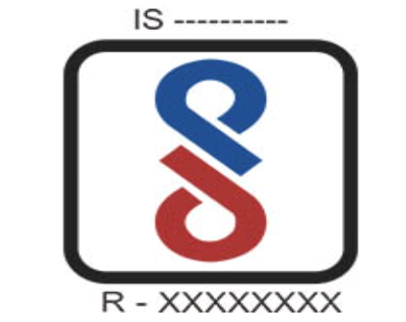
In the ever-evolving landscape of product quality and safety standards, regulatory bodies play a crucial role in ensuring that consumers are protected and products meet specified benchmarks. The Bureau of Indian Standards (BIS) is one such organization in India that oversees the standardization and certification of products. To bring products under the purview of BIS, a comprehensive registration scheme is in place.
Understanding BIS Registration:
BIS registration is a mandatory process designed to uphold the quality and safety of products sold in the Indian market. The scheme covers a wide array of products, ranging from electronics to machinery, and is applicable to both domestic manufacturers and importers.
Categories of Products Covered:
The BIS registration scheme classifies products into various categories, each with its set of standards and requirements. This categorization ensures that diverse industries adhere to specific guidelines relevant to their product types. Common categories include electronics and IT goods, chemicals, and textiles.
Ministry of Electronics & Information Technology (MeitY) has notified “Electronics and Information Technology Goods (Requirement for Compulsory Registration) Order, 2012” on 03 October 2012 for fifteen categories of electronics items. Fifteen more product categories were added by MeitY under this order on 07 November 2014. MeitY has also notified Indian Standard for ‘Indian Language Support for Mobile Phones’ on 24 October 2016. Another thirteen product categories were added by MeitY under this order on 17 August 2017. Another twelve product categories were added by MeitY under this order on 01 April 2020. Another seven product categories were added by MeitY under this order on 01 Oct 2020. MeitY has also notified Indian Standard for ‘Digital Television Receiver for Satellite Broadcast Transmission – Specification ‘on 26 April 2023.
Ministry of New and Renewal Energy(MNRE) has notified five products under Solar Photovoltaics, Systems, Devices and Components Goods (Requirements for Compulsory Registration) Order, 2017 dated 30 August 2017.
Ministry of Chemicals and Fertilizers has notified one product under Ortho Phosphoric Acid (Quality Control) Order, 2021 dated 15 June 2021, one more product has been added under the Polyphosphoric Acid (Quality Control) Order, 2021 dated 24 December 2021. Further, one more product has been added under Trimethyl Phosphite (Quality Control) Order, 2022 dated 05 April 2022.
Ministry of Textiles has notified one product under Cotton Bales (Quality Control) Order, 2023 dated 28 February 2023.
As per the Orders, no person shall manufacture or store for sale, import, sell or distribute goods which do not conform to the Indian standard specified in the order and do not bear the Standard Mark with unique registration number obtained from BIS.
Bureau of Indian Standards grants licence to the manufacturers to use or apply Standard Mark with unique R-number, through registration based on self-declaration of conformity for goods and articles as per Indian Standards. The grant of licence and its operation under Compulsory Registration Scheme are carried out as per the conformity assessment scheme under Scheme – II of Schedule – II of BIS (Conformity Assessment) Regulations, 2018′.
Complete list of aforementioned products can be seen from the website of BIS at the link [https://www.bis.gov.in/product-certification/products-under-compulsory-certification/scheme-ii-registration-scheme/]
Who Can Apply For CRS
Manufacturer (factory owner) of any product, which comes under the ambit of the Compulsory Registration Order (CRO) notified by Ministry of Electronics and Information Technology (MeitY), Ministry of New and Renewable Energy (MNRE),Ministry of Chemicals and Fertilizers and Ministry of Textiles.
Key Steps in the Registration Process:
1. Testing of Applicant samples:
Fort starting the application process under CRS of BIS the product undergoes rigorous testing at designated labs of BIS. This step ensures that the product complies with the relevant Indian standards. BIS has established testing laboratories across the country to facilitate this process, and adherence to the specified standards is non-negotiable.
2. Application Submission:
The journey at BIS begins with manufacturers or importers submitting an application to BIS. This application includes details about the product, its intended use, and comprehensive technical documentation. Ensuring accuracy at this stage is crucial, as it sets the foundation for the entire registration process.
3. Grant of Registration:
Upon successful completion of application scrutiny by BIS, and with the manufacturing facility meeting the required standards, BIS grants registration to the product. This signifies that the product has met the prescribed benchmarks and is deemed safe for consumers.
Benefits of BIS Registration:
1. Consumer Confidence:
BIS registration instils confidence in consumers, assuring them that the products they purchase adhere to established quality and safety standards.
2. Market Access:
Many products, especially those in regulated categories, require BIS registration for entry into the Indian market. This registration acts as a gateway, ensuring compliance with national standards.
3. Legal Compliance:
BIS registration is a legal requirement for specific products. Failing to comply with this regulation can result in penalties and, in severe cases, product recalls.
How Satyam Instrumentation can be your CRS registration consultant
Backed by a team of seasoned professionals and domain experts, Satyam Instrumentation brings unparalleled knowledge of Indian and International standards across various sectors. Whether you’re in manufacturing, healthcare, construction, or any other industry, we provide tailored solutions to meet your specific needs.
Join hands with Satyam Instrumentation to embark on a journey of excellence and distinction. Our unwavering commitment to quality, integrity, and innovation positions us as your ideal consultancy partner. Elevate your standards, enhance your reputation, and achieve sustainable growth with Satyam Instrumentation.
Contact us today to learn more about how we can elevate your organization to new heights.
Conclusion:
The BIS registration scheme stands as a testament to India’s commitment to quality and safety standards. Manufacturers and importers navigating this process not only contribute to consumer welfare but also gain a competitive edge in the market. As industries continue to evolve, adherence to BIS standards remains a cornerstone in fostering a culture of excellence and accountability in product manufacturing and distribution.




